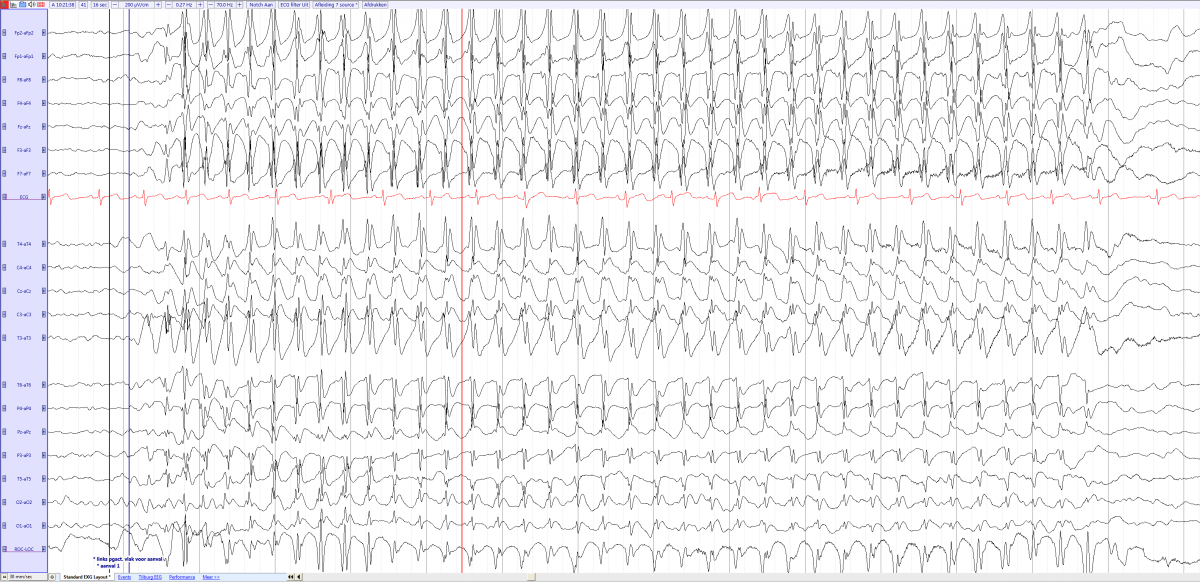Difference between revisions of "Childhood Absence Epilepsy"
From EEGpedia
| Line 3: | Line 3: | ||
* Most around 5-6 years old when the first absence seizure was seen | * Most around 5-6 years old when the first absence seizure was seen | ||
* 1 in 15.000-50.000 children | * 1 in 15.000-50.000 children | ||
| − | * Siblings of children with Childhood Absence Epilepsy have about a 1 in 10 chance of developing epilepsy. | + | * Siblings of children with Childhood Absence Epilepsy (CAE) have about a 1 in 10 chance of developing epilepsy. |
| Line 17: | Line 17: | ||
=EEG= | =EEG= | ||
* Generalized [[Spike slow wave complex]] of 3 Hz | * Generalized [[Spike slow wave complex]] of 3 Hz | ||
| − | * Hyperventilation triggers an absence seizure in over 80% of children with | + | * Hyperventilation triggers an absence seizure in over 80% of children with Childhood Absence Epilepsy. |
Revision as of 15:32, 5 July 2017
Background
- Usually in children between 3 and 10 years old
- Most around 5-6 years old when the first absence seizure was seen
- 1 in 15.000-50.000 children
- Siblings of children with Childhood Absence Epilepsy (CAE) have about a 1 in 10 chance of developing epilepsy.
Clinic
- Staring spells during which the child is not aware or responsive
- Eyes may roll up briefly or the eyes may blink.
- Sometimes repetitive movements like mouth chewing.
- Usually the absence last for around 10 seconds and ends abruptly
- After the seizure the child resumes normal activity
- Could be provoked by hyperventilation
EEG
- Generalized Spike slow wave complex of 3 Hz
- Hyperventilation triggers an absence seizure in over 80% of children with Childhood Absence Epilepsy.
Childhood absence epilepsy in a 4,5 year old girl, with typical generalized 3 Hz spike wave complexes (source)
